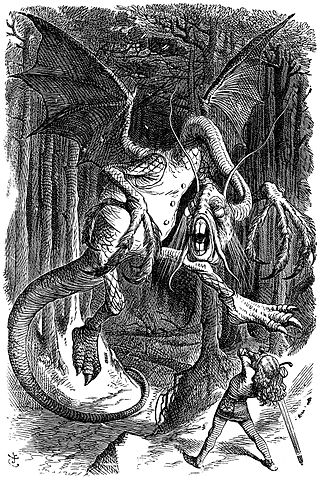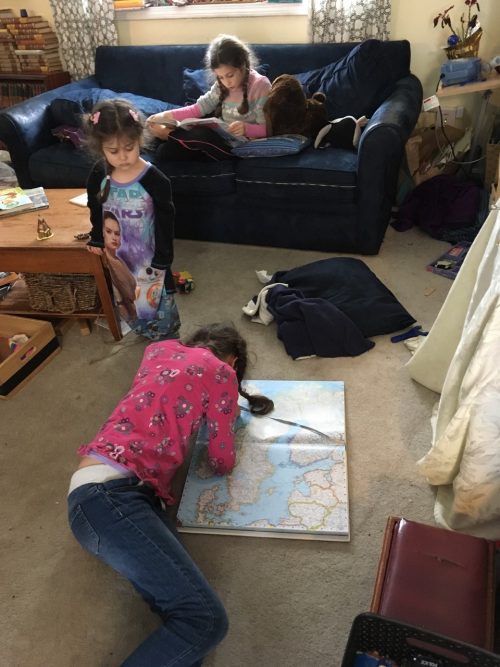1. Teachers: Will We Ever Learn?, an article in the NY Times.
I agree with the author that the industrial-factory model is the basic problem in education. I’m not really convinced that the proposed professional model they offer in it’s place goes far enough in challenging what is problematic in the current state of affairs because it doesn’t necessarily obliterate the old paradigm. It only attacks it in terms of the organization of teachers—replacing one kind of bureaucracy with another kind of government oversight structure: certification, bar exams—and does not address the philosophy of education itself. It doesn’t necessarily mean teachers will interact with students in a meaningfully different way. Unless it completely overthrows the notion that children can be treated like interchangeable parts and that education can be “standardized.”
But I’m convinced we make our children dumber by sending them to school. How? By stopping reading books over their heads when they arrive in kindergarten. Suddenly graded readers allow them to read only books that they can decode themselves. What they used to read passively (through their ears) is too often removed from their diets because “it’s above their level.”
It’s to the point now where the children of 50 years ago don’t remember that their parents read fairy tales, adventure stories, fables, etc. to them before they were in school. So they only read Dr. Seuss to their children and those children aren’t particularly interested in reading but if they are they are inclined to read very simple, inane, contentless works to their children.
We must make at least two distinctions: that between dependent and independent reading and that between reading and decoding. A child is reading dependently when he needs someone else to decode the sound symbols (letters) for him. He may not yet know how to decode or he may just feel like listening. The point is that he is being read to. But his intellect is still reading. The order and structure of the communication is the order and structure of written communication, which is a significantly different thing from spoken communication.
While listening, his eyes are not reading, but his mind is. This distinction is critical. When the child begins to decode words, he is not, to be very precise, reading. He is decoding symbols. The intellectual activity is profoundly different, which is why you can have a superb reader who can’t spel to saiv his lyfe.
3. A critique of California’s new recommended reading list of books for English, science and socials studies teachers: Reading list is diverse, inclusive and useless
. . . the list is too long and too indiscriminate. It contains 7,800 titles—2,500 for grades 9 – 12 alone—and it sets dozens of classics among thousands of contemporary, topical titles without distinction. Shakespeare’s Macbeth is followed by Macho, a 1991 tale of an illegal immigrant who becomes a field worker. Little Women makes the list, but the description of it says nothing about its historical status. Every work gets the same treatment, a one-sentence statement of content. The field is overwhelmingly wide and it has only one level, ranking Leaves of Grass, Huck Finn, etc. equal to pop culture publications.
Common Core Standards call for students to “demonstrate knowledge” of the ‘foundational works of American literature,” such as Ben Franklin’s Autobiography, Booker T. Washington’s Up from Slavery and Emily Dickinson’s poetry, Bauerlein writes. The California list buries the classics in a pile of pop lit. The Iliad is on the list. So is Mitch Albom’s The Five People You Meet in Heaven and a sequel to The Da Vinci Code
Part of what I think may be the basic problem with the “Common Core” reading list and with national standards in general is that we can’t even agree on what is “foundational”. Our society no longer has a common understanding of what we should be teaching our children. Modern America is secular, relativist, materialist, consumerist. Not many people still believe that we should be passing on a great Western Christian tradition to our children. Many people , especially in academia and education, the kind of people who are formulating these lists, don’t believe we have a cultural heritage that is worthy of being transmitted. When all is relative and your opinion is as good as mine and there is no such thing as Truth and most of our history is bad because it’s all about white male imperialists, then who cares whether kids can understand their own cultural heritage. Again, this is impressionistic rather than a specific critique of the common core. But my gut guess is that the Common Core does not align with my ideas of what education should be.
5. To Whom Do Children Belong?
It is thus not directly but through their families that children belong to the larger political community, and it is also through their parents that the political community exercises paternalistic authority over them (except in cases where the authority of parents is clearly failing to fulfill its function—i.e., cases of abuse and neglect).
In other words, children’s relationship to the political community is fundamentally different from that of adults, because it is mediated through their belonging to a family and living under the authority of their parents.
Harris-Perry’s view is wrong because it fails to recognize the family as an authoritative community distinct and relatively independent from the larger political community with regard to its internal affairs, primary among which is the education and raising of children. And it is dangerous because the eradication of independent, intermediate authority structures between the individual and the state—of which the family and the church are the two most fundamental—is precisely, as Hannah Arendt famously pointed out, the essence of totalitarianism.
Of course the Catholic understanding is that the family, not the individual, is the basic unit of society and that parents are the primary educators of their children. Which doesn’t mean parents must be the only educators of their children, just that in sending their children to a school of their choice, which can include state schools, they are exercising their right to delegate some of the tasks of education to another person for a time and that the school stands in loco parentis, deriving authority over the child from the parent’s delegation. For the state to usurp that parental authority is a violation of a fundamental human right, not only the rights of the parents to educate their children but of the children to be protected and nurtured by their parents within the family.
Just some things to chew on. Please feel free to discuss at length. What do you think about the proposal for professionalization of teaching, about reading aloud and teaching reading, about the Common Core, and about schools taking ownership of children’s education?






